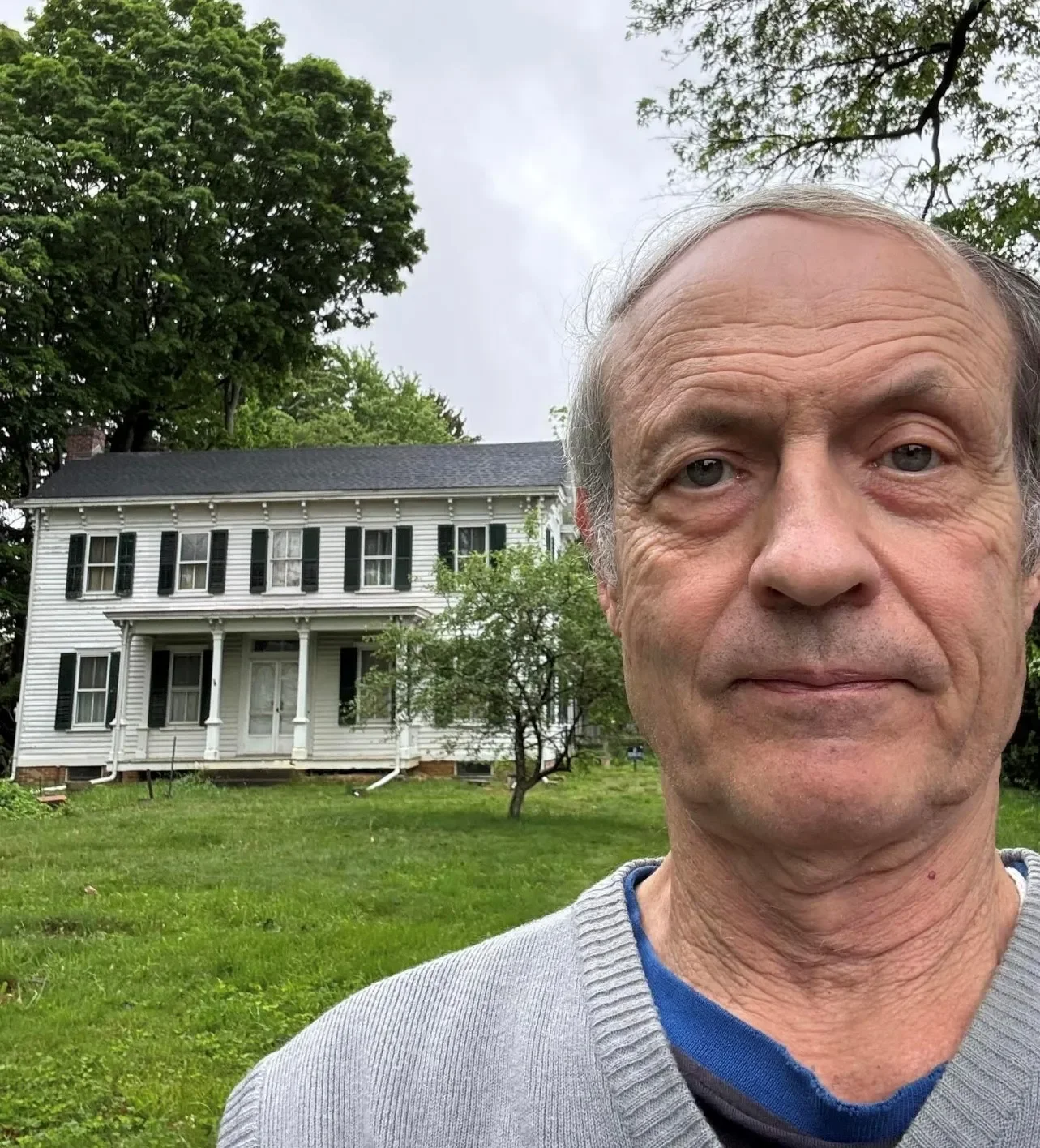“No way to get it back”: NJ farm owner fights against eminent domain
By: Conner Drigotas
Sitting in his family’s farmhouse in Cranbury, New Jersey, Andy Henry recalls a town meeting in the 1960’s where local officials attempted to use eminent domain for the purpose of building a road “right through the front of our property.”
“It was obviously an unnecessary road, because the effort was defeated,” he says, “but somebody came up with that idea, and they were just pushing ahead with it.”
He also recalls another local case where a World War I veteran had his land bisected by the highway via eminent domain, cutting off the man’s access to his own fields and forcing a sale.
Andy’s interest in eminent domain isn’t an abstract hobby. He and his brother have been informed by local officials that their property, a 21 acre farm which has been in the family since 1850, is likely to be seized and used to fulfill a state requirement for a certain number of affordable housing units.
“It is a state requirement, for sure. So they are acting in response to a mandate,” Andy says, “It's just a mystery of why they would come here.”
In other words, local officials feel they are being coerced to enact policies by force, distant state legislators have handed down a mandate that ignores the natural end results of theft and violence. Innocent people are being harmed and a family may lose their identity and history.
The farm, he says, is a terrible spot for housing - especially affordable housing which is ostensibly intended to help lower income people. Putting housing on what is currently Andy’s farm would isolate them from the town of Cranbury, rather than help newcomers find a home in the community.
“They've been pointed to several other properties that would be more logical,” he says, “We are two miles from the center of town, we're surrounded by warehouses.”
More importantly, though, the farm isn’t for sale. Not only is it currently in use as a hormone-free and chemical-free cow and sheep farm, but it has an incalculable value to their family.
“It's certainly emotional. We love having it as a farm,” he says, “We just love taking care of it… I want to pass this on to my kids. I hope they love it like we do.”
No phone calls, no communication
Andy and his brother have turned down many offers for their land in the past. He said that they routinely received, and turned down, inquiries from land developers offering as much as $30 million. They simply haven’t wanted to sell. What Andy and his brother want, however, hasn’t been part of the discussion for local officials.
“We just got a certified letter in the mail,” Andy recalls, “Basically, it said ‘we have to do this affordable housing. We've identified your place, and one smaller place up the road. If you want to tell us what you think the place is worth, we can work with you. If you don't want to sell, we'll just use eminent domain to take the property.’”
The letter, dated April 21st, was delivered on April 24th, just a few days before the April 28th meeting where city officials read the first ordinance to take the property.
“No phone calls, no communication from them over these last several months when they've been working on this,” Andy says, “It's just right out of the blue, less than five days before they had a first reading.”
That left him and his brother scrambling to raise awareness, find an attorney, and mount a defense against the forceful taking of his family property. If a neighbor were trying to steal the Henry family farm it would be the job of government officials to prevent it. When government agents are doing the taking, they are claiming special permission to steal, and moving quickly to get it done.
According to Andy, town officials are moving ahead with seizing the Henrys’ farm for affordable housing, despite the property being ineligible for that construction under current zoning laws. That could be changed in the future, but the town is running up against a state deadline to move forward.
“Apparently the way it works is they have to submit this plan to the state by June 30th, and we and our lawyer will contest it,” Andy says, “but apparently, at the same time, they get to come out and do an appraisal and tell us what they think it's worth, which I'm pretty confident would be way, way less than what some warehouse developers around here have offered.”
That state deadline, Andy says, continues to push Cranbury officials forward without regard for the wishes of the community. “They haven't slowed down a bit. They're determined to keep pressing on this,” he says, “Recently they came out with a proposal to take only half the property. I think they're calling that a negotiation, but it's certainly not a negotiation at this point.”
We know that theft and violence result in decreased happiness, harmony, and prosperity, but Cranbury government officials and New Jersey State lawmakers are pretending this Principle doesn’t apply to them. They aren't the first to operate under this incorrect assumption.
An uphill battle
The power to take land from unwilling citizens has a strong legal backing. June 2025 marked the 20 year anniversary of Kelo v. New London Connecticut, a Supreme Court decision where the city was given permission to seize Suzette Kelo’s little pink house so pharma giant Pfizer could be part of an economic development project. Kelo’s house was taken and destroyed, but the Pfizer project never came to pass. The land sits mostly empty and undeveloped to this day.
With the ink barely dry on another denial by the Supreme Court to overturn Kelo, Andy is searching for pro-bono legal representation while currently paying out of pocket for an attorney to fight for their land. He is being lawfully robbed, and paying dearly in an expensive fight to prevent it.
There is help coming from other places. The media coverage of town officials’ efforts has gone national. Federal government officials at the Department of Agriculture have reached out saying they are ”exploring every legal option to help,” and Andy says the people of Cranbury have rallied with him, creating campaigns that have raised more than $140,000 for his legal defense, social media posts, and making referrals to support organizations.
Andy has been researching on his own as well, learning about the history of eminent domain and seeing the parallels with his own situation.
“I just can't imagine them actually building housing here. It could be like in the Kelo case,” he laments. “They lost their property, and then [the developers] said we're not actually going to do that. I guess it was Pfizer [that] pulled out, and all those jobs they were supposed to create didn't get created.”
Andy is worried about something similar happening with his family’s farmhouse. “It wouldn't be beyond me to say they changed their minds later and decide, well, we'll build somewhere else. By then we've lost our property, so there's no way to get it back.”
—
Postscript: In a meeting on June 24th 2025, the Cranbury NJ Planning Board moved forward with the plan to take half of the Henry’s farm using eminent domain. “I believe we still have an opportunity to still get another place approved within the next 60 days.” Andy commented via text message, “They could’ve done something in the last four weeks, but they chose not to for some reason.”
Andy Henry Update
Facing national pressure to Save the Henry Family Farm, New Jersey state and local officials say they have reached an agreement with Andy Henry and his brother to “ensure the farm remains under the family’s ownership, while local leaders look elsewhere to meet the town’s affordable housing obligations.”
Though the mandate from state officials still requires that the “affordable” housing be built, and leaves others at risk of their property being taken by force, Andy says the agreement “is a very positive development” and “appears to be a sure thing.”
The formal settlement is expected to be finalized in early 2026, and he is now waiting on the slow wheels of justice to play their part in securing his happiness, harmony, and prosperity.


